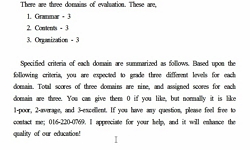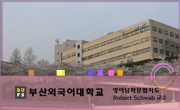최근 작문 평가의 패러다임 변화와 더불어 인지주의적 관점과 사회 · 문화적 관점의 장점을 담화 종합하는 연구 관점이 새롭게 부각되었다. 이러한 관점은 그룹 인지의 중요성을 부각시켜 ...
http://chineseinput.net/에서 pinyin(병음)방식으로 중국어를 변환할 수 있습니다.
변환된 중국어를 복사하여 사용하시면 됩니다.
- 中文 을 입력하시려면 zhongwen을 입력하시고 space를누르시면됩니다.
- 北京 을 입력하시려면 beijing을 입력하시고 space를 누르시면 됩니다.
https://www.riss.kr/link?id=A103026919
- 저자
- 발행기관
- 학술지명
- 권호사항
-
발행연도
2017
-
작성언어
Korean
- 주제어
-
등재정보
KCI등재
-
자료형태
학술저널
- 발행기관 URL
-
수록면
129-167(39쪽)
-
KCI 피인용횟수
3
- DOI식별코드
- 제공처
-
0
상세조회 -
0
다운로드
부가정보
국문 초록 (Abstract)
최근 작문 평가의 패러다임 변화와 더불어 인지주의적 관점과 사회 · 문화적 관점의 장점을 담화 종합하는 연구 관점이 새롭게 부각되었다. 이러한 관점은 그룹 인지의 중요성을 부각시켜 효과적인 채점 전략을 모색할 수 있는 기반이 되었으며 나아가 작문 평가자들의 인지 과정 이해에 도움을 주었다. 본 연구는 능숙한 작문 평가자 6명의 학생글 읽기 과정에서 이루어지는 인지 과정의 정보 처리 양상을 혼합 연구 방법을 통하여 비교 · 분석하였으며, 이를 기반으로 평가자로서 학생글을 효과적으로 읽을 수 있는 전략적 방법을 그룹 인지의 활용 측면에서 고찰하였다. 이러한 연구 결과는 작문 평가자로서 학생글 읽기 과정에서 갖추어야 할 정보 처리 양상의 특성에 대해 논의 할 수 있으며 무엇보다 국어교사들의 평가 문식성 교육에 시사점을 제공할 수 있다. 그리고 작문 평가자 스스로 자신의 평가 과정을 스스로 점검하여 변형시켜 나갈 수 있는 효과적인 모니터링 방법으로서 그룹 인지의 활용 방법에 대해 제언할 수 있다. 특히 본고의 논의는 그동안 주로 고립된 상황에서 이루어졌던 개인적 작문 평가 과정의 불일치 문제를 해결할 수 있는 방법적 제언을 하였기에 교사 교육적 함의를 제공할 수 있을 것이라 기대된다.
다국어 초록 (Multilingual Abstract)
The research of group cognition is located on boundary area between cognitive and socio-cultural perspectives. Therefore, this perspectives can resolve the problem raised between reliability and validity in writing assessment. And group scoring can be building expertise, trusting subjectivity and valuing difference of raters in writing assessment.
The study on prototypes of teacher-as-reader in writing assessment is very important for the resolution of the different scores. Therefore the goals of this article are to study the reading patterns of teacher as scorer by using personal cognition and...
The study on prototypes of teacher-as-reader in writing assessment is very important for the resolution of the different scores. Therefore the goals of this article are to study the reading patterns of teacher as scorer by using personal cognition and group cognition and reveal usefulness of team discussion and group cognition. This study analyzes the prototypes of teachers-as-reader and discusses about importance of the proficient reading for writing assessment via group discussion.
The research of group cognition is located on boundary area between cognitive and socio-cultural perspectives. Therefore, this perspectives can resolve the problem raised between reliability and validity in writing assessment. And group scoring can be building expertise, trusting subjectivity and valuing difference of raters in writing assessment.
목차 (Table of Contents)
- 국문요약
- 1. 서론
- 2. 작문 평가자의 학생글 읽기 과정
- 3. 그룹 평가자의 학생글 읽기 과정
- 4. 연구 방법
- 국문요약
- 1. 서론
- 2. 작문 평가자의 학생글 읽기 과정
- 3. 그룹 평가자의 학생글 읽기 과정
- 4. 연구 방법
- 5. 연구 결과
- 6. 결론
- 참고문헌
- Abstract
참고문헌 (Reference)
1 주세형, "평가 문식성 신장을 위한 국어과 교사 교육" 한국문법교육학회 15 : 31-50, 2011
2 노명완, "문식성 교육 연구" 한국문화사 2008
3 오세영, "디지털 시대 국어교사의 인지활동과 쓰기 평가의 상관 연구" 한국국어교육학회 (92) : 255-290, 2012
4 오세영, "국어교사의 학생글 평가전문성 연구" 고려대학교 2015
5 오세영, "국어교사의 총체적 · 분석적 쓰기 채점과 평가자 협의 과정 연구" 한국어교육학회 (141) : 183-230, 2013
6 박영민, "국어교사의 작문평가 전문성 신장 방안" 한국작문학회 (13) : 89-116, 2011
7 박종임, "국어교사의 쓰기 평가 특성 연구" 한국교원대학교 대학원 2013
8 DeRemer, M. L., "Writing assessment: Raters' elaboration of the rating task" 5 (5): 7-29, 1998
9 Messick, S., "Validity of test interpretation and use"
10 Moss, P. A., "Validity in educational assessment" 30 : 109-162, 2006
1 주세형, "평가 문식성 신장을 위한 국어과 교사 교육" 한국문법교육학회 15 : 31-50, 2011
2 노명완, "문식성 교육 연구" 한국문화사 2008
3 오세영, "디지털 시대 국어교사의 인지활동과 쓰기 평가의 상관 연구" 한국국어교육학회 (92) : 255-290, 2012
4 오세영, "국어교사의 학생글 평가전문성 연구" 고려대학교 2015
5 오세영, "국어교사의 총체적 · 분석적 쓰기 채점과 평가자 협의 과정 연구" 한국어교육학회 (141) : 183-230, 2013
6 박영민, "국어교사의 작문평가 전문성 신장 방안" 한국작문학회 (13) : 89-116, 2011
7 박종임, "국어교사의 쓰기 평가 특성 연구" 한국교원대학교 대학원 2013
8 DeRemer, M. L., "Writing assessment: Raters' elaboration of the rating task" 5 (5): 7-29, 1998
9 Messick, S., "Validity of test interpretation and use"
10 Moss, P. A., "Validity in educational assessment" 30 : 109-162, 2006
11 Cherry, R. D., "Validating holistic scoring for writing assessment: Theoretical and empirical foundations" 109-141, 1993
12 Lesley, M., "Understanding Resistance: Preservice Teachers' Discourse Models of Struggling Readers and School Literacy Tasks" 55 (55): 25-34, 2011
13 Purves, A., "The teacher as reader: An anatomy" 46 : 259-265, 1984
14 Wolfe, E., "The relationship between essay reading style and scoring proficiency in a psychometric scoring system" 4 (4): 83-106, 1997
15 Lumley, T., "The process of the assessment of writing performance: the rater’s perspective" The University of Melbourne 2000
16 Panadero, E., "The Use of Scoring Rubrics for Formative Assessment Purposes Revisited: A Review" 9 : 129-144, 2013
17 Hodges, E., "The Unheard Voices of Our Responses to Students' Writing" 11 (11): 203-218, 1992
18 Davidson, F., "Test craft. A teacher’s guide to writing and using language specifications. New Haven and" Yale University Press 2002
19 Miles, J. R., "Team cognition in group interventions: The relation between coleaders' shared mental models and group climate" 12 (12): 191-209, 2008
20 Granado, C. C., "Teachers as readers: A study of the reading habits of future teachers" 26 (26): 44-70, 2014
21 National Council of Teachers of English, "Teachers as Readers: Forming Book Groups for Professionals"
22 Cremin, T., "Teachers as Readers: Building Communities of Readers" 43 (43): 11-19, 2009
23 Brooks, G. W., "Teachers as Readers and Writers and as Teachers of Reading and Writing" 100 (100): 177-191, 2007
24 Milanovic, M., "Studies in Language Testing 3: Performance testing, cognition and assessment" Cambridge University Press 1996
25 Sperling, M., "Revealing the teacher-as-reader in response to students’ writing" 85 (85): 22-26, 1996
26 Sperling, M., "Revealing the Teacher-as-Reader: A Framework for Discussion and Learning"
27 Johnson, R. L., "Resolving Score Differences in the Rating of Writing Samples: Does Discussion Improve the Accuracy of Scores?" 2 (2): 117-146, 2005
28 Akkerman, S., "Reconsidering Group Cognition: From Conceptual Confusion to a Boundary Area between Cognitive and Socio-Cultural Perspectives?" 2 (2): 39-63, 2007
29 Broad, B., "Reciprocal authorities in communal writing assessment: Constructing textual value within a "new politics of inquiry"" 4 (4): 133-167, 1997
30 Penny, J. A., "Reading high stakes writing samples: My life as a reader" 8 (8): 192-215, 2003
31 Smith, D., "Rater judgments in the direct assessment of competency-based second language writing ability" 1 : 159-189, 2000
32 Bejar, I. I., "Rater cognition: Implications for validity" 31 (31): 2-9, 2012
33 Allagui, B., "Prototypes of the Teacher-as-Reader: An Integration of Cognitive Categorization Theory with Research on the Teacher-as-Reader" 9 (9): 21-30, 2011
34 Hayes, J. R., "Perspectives on Writing: Research, Theory, and Practice" International Reading Association 6-44, 2000
35 Harvey, C. W, "Making hollow men" 60 (60): 189-201, 2010
36 Osborne, J. J., "Just ask teachers: BUILDING expertise, trusting subjectivity, and valuing difference in writing assessment" 22 : 33-47, 2014
37 Smolik, M., "Investigating scoring validity. A study of the ‘nowa matura’ speaking exam in English at the basic level" Maria Sklodowska-Curie University 2007
38 Guba, E. G., "Fourth generation evaluation" Sage 1989
39 Cumming, A, "Expertise in evaluating second language compositions" 7 (7): 31-51, 1990
40 Smolik, M., "Does using discussion as a score-resolution method in a speaking test improve the quality of operational scores?"
41 Clauser, B. E., "Components of rater error in a complex performance assessment" 36 : 29-45, 1999
42 Wolfe, E. W., "Cognitive differences in proficient and nonproficient essay scorers" 15 (15): 465-492, 1998
43 Lumley, T., "Assessment criteria in a large-scale writing test: What do they really mean to the raters?" 19 (19): 246-276, 2002
44 Weigle, S. C., "Assessing writing" Ernst Klett Sprachen 2002
45 Lumley, T., "Assessing second language writing: The rater’s perspective (Vol. 3)" Peter Lang 2005
46 Vaughan, C., "Assessing second language writing in academic contexts" Ablex Publishing Corporation 1991
47 Gebril, A., "Assembling validity evidence for assessing academic writing: Rater reactions to integrated tasks" 21 : 56-73, 2014
48 Crisp, V., "An investigation of rater cognition in the assessment of projects" 31 (31): 10-20, 2012
동일학술지(권/호) 다른 논문
-
- 우리말글학회
- 김영찬(Kim, Young-chan)
- 2017
- KCI등재
-
- 우리말글학회
- 신서인(Shin, Seo-in)
- 2017
- KCI등재
-
- 우리말글학회
- 강보선(Kang, Bo-sun)
- 2017
- KCI등재
-
- 우리말글학회
- 최사라(Choi, Sa-ra)
- 2017
- KCI등재
분석정보
인용정보 인용지수 설명보기
학술지 이력
| 연월일 | 이력구분 | 이력상세 | 등재구분 |
|---|---|---|---|
| 2026 | 평가예정 | 재인증평가 신청대상 (재인증) | |
| 2020-01-01 | 평가 | 등재학술지 유지 (재인증) |  |
| 2017-01-01 | 평가 | 등재학술지 유지 (계속평가) |  |
| 2013-01-01 | 평가 | 등재 1차 FAIL (등재유지) |  |
| 2010-01-01 | 평가 | 등재학술지 유지 (등재유지) |  |
| 2008-01-01 | 평가 | 등재학술지 유지 (등재유지) |  |
| 2005-05-27 | 학술지명변경 | 외국어명 : Urimalgeul -> Urimalgeul: The Korean Language and Literature |  |
| 2005-01-01 | 평가 | 등재학술지 선정 (등재후보2차) |  |
| 2004-01-01 | 평가 | 등재후보 1차 PASS (등재후보1차) |  |
| 2003-01-01 | 평가 | 등재후보학술지 선정 (신규평가) |  |
학술지 인용정보
| 기준연도 | WOS-KCI 통합IF(2년) | KCIF(2년) | KCIF(3년) |
|---|---|---|---|
| 2016 | 0.58 | 0.58 | 0.6 |
| KCIF(4년) | KCIF(5년) | 중심성지수(3년) | 즉시성지수 |
| 0.54 | 0.53 | 1.033 | 0.17 |




 KCI
KCI DBpia
DBpia




